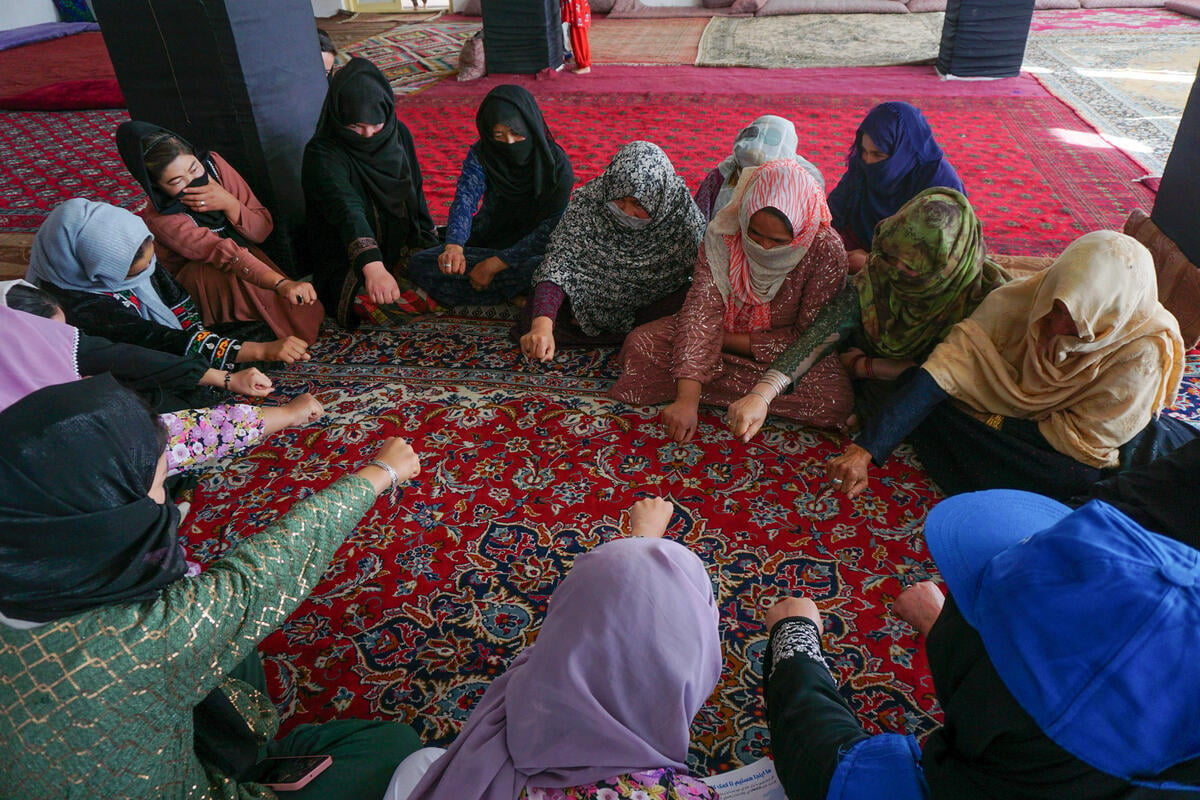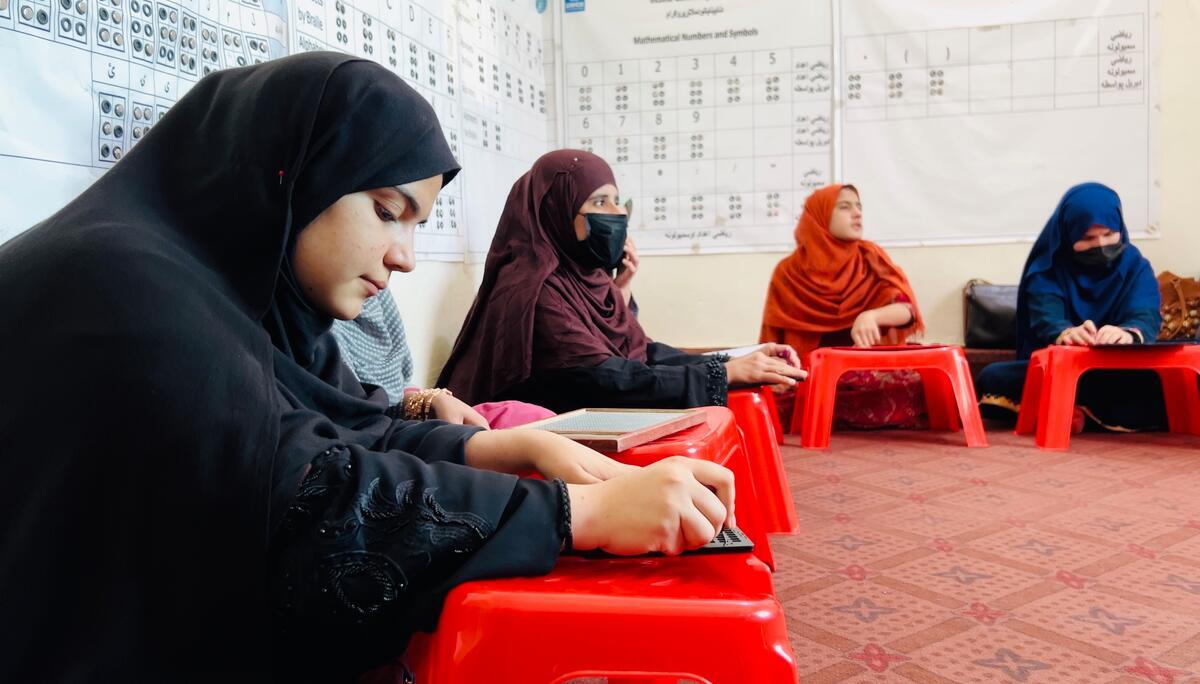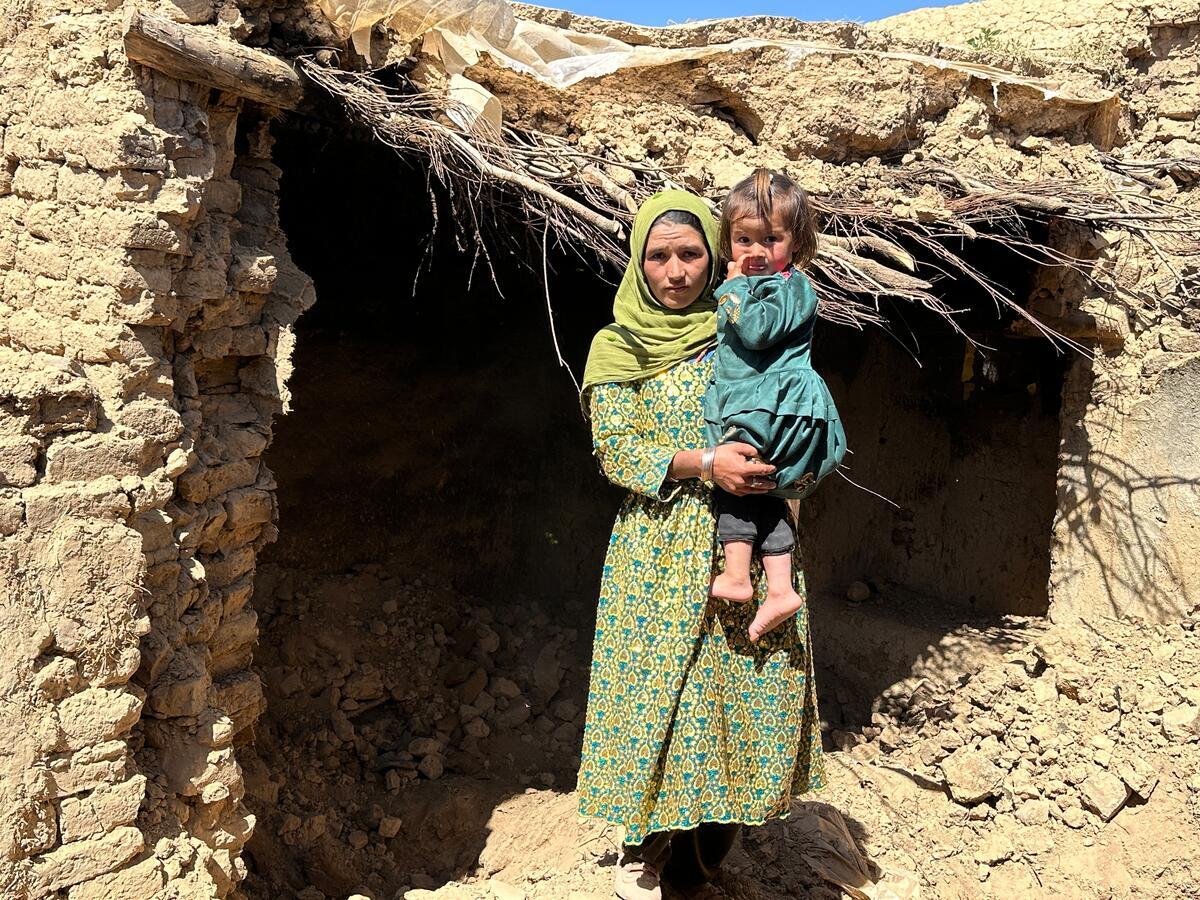Afghanistan Humanitarian Update No. 4
Afghanistan Humanitarian Update No. 4
UNHCR Calls for Open Borders
High Commissioner Ruud Lubbers on Thursday again urged governments to keep their borders open to Afghans fleeing their country, not least because of the deteriorating security situation there. Lubbers also called for a concerted humanitarian response to the serious plight of Afghan civilians who are directly affected by the current insecurity in Afghanistan.
"We believe that given the current situation inside Afghanistan, there is even more reason to encourage all countries, including countries bordering Afghanistan, not to close their doors," Lubbers said.
He said UNHCR was asking for "temporary protection" for Afghans fleeing their homeland, adding that his agency would then "work with all concerned to help people to return as soon as circumstances would allow and look into other possibilities to spread the burden."
The UN refugee agency, with support from its donors, will assist Afghanistan's neighbours with any movements of Afghans beyond their borders. As the international community works toward a global approach to combat terrorism, Lubbers said a "humanitarian coalition" was also necessary to address civilian needs.
Initial Appeal for $6 million in Emergency Funds
UNHCR appealed to donors on Thursday for $6 million in initial emergency funds to cover the immediate deployment of emergency personnel, the positioning of stocks, and for contingency planning activities for the entire region.
Relief agencies plan to issue a regional and comprehensive inter-agency appeal for Afghanistan and the surrounding region next week, of which UNHCR's portion will be for a much larger sum.
UNHCR is ordering 20,000 tents from South Asian suppliers in order to boost emergency stocks in the region, while 20,000 kitchen sets are being diverted to Pakistan from UNHCR's regional stock in Dubai.
The initial emergency funds requested on Thursday are in addition to the UN refugee agency's current $46.7 million 2001 budget for refugees and returnees in Afghanistan, Iran and Pakistan. Canada on Wednesday announced a contribution of $1 million towards UNHCR's 2001 programme.
Pakistan
UNHCR staff in Pakistan have prepared an initial emergency needs assessment to address the immediate survival needs of up to 100,000 Afghans. Some 15,000 have already arrived in the country.
Twenty-five UNHCR staff members will depart within 72 hours for Pakistan. The three emergency teams will be posted to Islamabad, Peshawar and Quetta, where they will support UNHCR's existing offices and prepare for a possible influx from Afghanistan. The teams consist of emergency coordinators, and specialists in legal protection, water, health care, site planning, logistics, telecommunications, staff safety and other emergency personnel. They will be expected to remain in the field initially for two months.
Already in Pakistan's North-West Frontier Province, authorities have finalized plans to re-open 80 former refugee settlements that could shelter some 800,000 possible new arrivals. In Quetta, in Pakistan's Balochistan Province, there are hopeful signs that permission will be granted to establish new camps near the border. Pakistan's government, however, insists that new arrivals must be accommodated in separate sites, and that complete segregation is maintained between the country's longtime Afghan settlements and any new arrivals who may flee their homeland.
Iran
UNHCR staff working along Iran's western border with Afghanistan continue planning meetings with Iranian officials, and assessments of possible camp sites along the frontier.
Officials from Iran's Bureau for Aliens and Foreign Immigrant Affairs (BAFIA) have told UNHCR that as many as 1,000 Afghans are massing at the Afghan border town of Zaranj, west of Kandahar, opposite the Iranian border town of Zabol. The group has not yet crossed the border. The authorities also reported that 500 Afghans crossed from Pakistan into Iran at Mir Javeh. UNHCR is requesting that any involuntary returns of Afghans who are illegally in Iran be suspended until the situation improves inside Afghanistan.
Iran has floated plans to establish camps along the border with Afghanistan to shelter up to 200,000 Afghans who may flee their homeland. Some local media reports indicate that seven camp sites inside Afghanistan have been proposed which would require the approval of local authorities prior to their establishment. Adequate security measures to ensure the safety of humanitarian personnel would also be a prerequisite.
UNHCR, together with BAFIA, continues to pre-position relief supplies along Iran's border with Afghanistan, with goods delivered to Torbat-Jam and Khaf as well as Dogharoun. The UN refugee agency has initiated contacts with the airport authorities in Mashad to verify whether the city's airport would be available to handle flights by large cargo planes transporting relief supplies.
Central Asia
Across the Central Asian states, UNHCR staff are actively establishing coordination mechanisms with government partners, NGOs and UN sister agencies. UNHCR offices in the region have stepped up contacts with government interlocutors on the need to keep borders open.
In Uzbekistan, UNHCR has a small office at Termez, on the country's southern border with Afghanistan, which may be available for use as a humanitarian hub. Tajikistan has indicated it prefers cross-border humanitarian operations, rather than refugee assistance efforts on its own territory. Tajik authorities have recommended that stockpiles be assembled there for possible future use. Turkmenistan's foreign minister said that his country, which shares a short border with Afghanistan, would work closely with UNHCR. While not bordering on Afghanistan, Kyrgyz officials have said that Kyrgyzstan would honour its international commitments, which UNHCR believes sends a positive example to countries throughout Central Asia.








